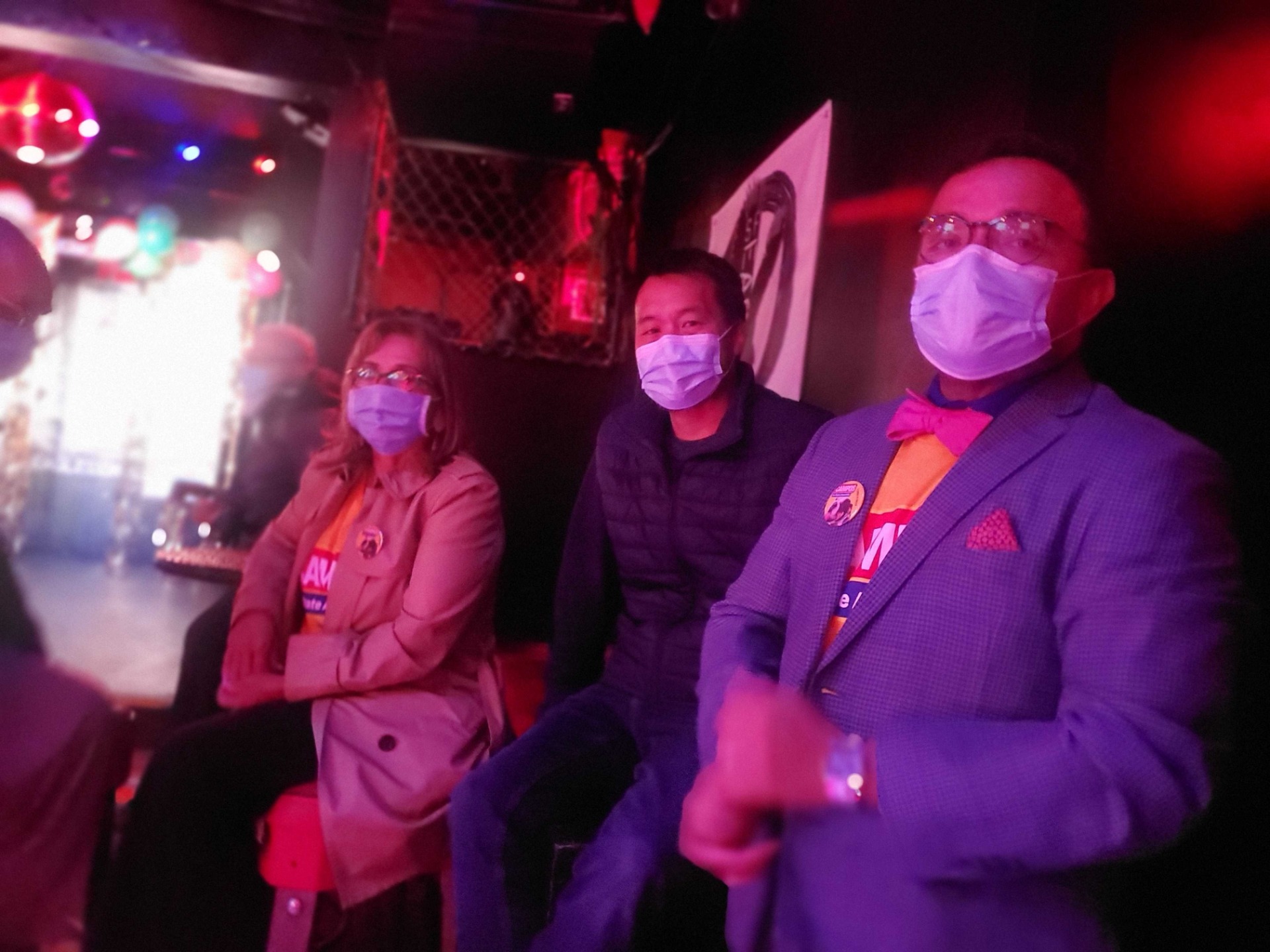San Francisco's assembly race has no clear winner on election night, Tuesday, but two candidates may be emerging as opponents in an April runoff election.
The race for the San Francisco Assembly District 17 seat looks to be heading to a contest solely between candidates Matt Haney and David Campos as neither commands the majority needed to win the race, but both are clearly ahead of their remaining two opponents.
As of 10:37 p.m., Haney and Campos have 35% and 37% of the vote, respectively, short of the majority needed to be a clear winner. Bilal Mahmood, a scientist and candidate new to the political system, has 20% of the vote. Thea Selby, a City College board trustee, has 6% of the vote.
San Francisco voting turnout stands at 26% on election night, roughly 130,000 voters out of 499,000.
"I think at the end of the day we're going to be at the top two and this is going to go down to a runoff," Campos said at his election night party at the San Francisco Eagle bar. As revelers clinked glasses in celebration behind him under stark red lighting, Campos said the closeness of the vote between him and Haney was a "testament to the ground game that we ran."
Haney also described his results as positive.
"I think it's really a statement of the kind of campaign we ran and the message we had, focused on solutions to really tough problems like housing," Haney said, standing at the SOMA StrEat Food Park. Surrounded by food trucks and with music bumping, his revelers cheered as the newest count came in to his favor.

The election was far from decisive, however. Haney, a San Francisco supervisor, made a prediction for a likely April runoff: He thinks his more pro-development message, among other policies, may resonate more with those who voted for Mahmood or Selby.
"I think if this were a ranked-choice race I would've won decisively. I think that a lot of the folks who maybe voted for Bilal or Thea are closer to where I am," he said. "But we'll have to make that case."
Tuesday's election was set in motion by the appointment of former Assemblymember David Chiu to serve as San Francisco's city attorney.
The four candidates quickly lined up to pursue the open office. The winner has the opportunity to become a leading progressive voice in California, by holding a seat previously battled over by Democratic stalwarts like Art Agnos, Harvey Milk, John Burton, Tom Ammiano, Mark Leno and Chiu, who defeated David Campos by a razor-thin margin back in 2014.
In his second run for the seat, Campos jumped out early — forming an exploratory committee before Chiu was even appointed city attorney. Campos lined up support from the progressive flank of San Francisco politics, running on a platform of single-payer health care, a higher minimum wage and higher taxes on wealthier Californians.
Campos's early entry into the race left Haney, often a leading progressive voice against Mayor London Breed, with little choice but to pivot to the political center.
The two candidates' differences were starkest on housing: While Campos argued for the preservation of local control in housing decisions, Haney promised to support changes in zoning laws to open the door for more housing development.
